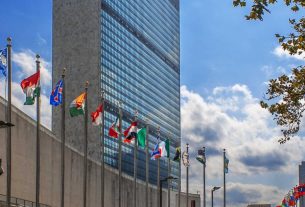As ongoing talks for a potential ceasefire between Israel and Hamas unfold, families of the hostages held in Gaza are cautiously optimistic. In recent discussions, Hamas has reportedly agreed to release a list of 34 hostages, a step forward in the prolonged negotiations that have left many families in limbo since the October 7, 2024 Hamas attack on Israel.
Among those named on the list are individuals like 84-year-old Oded and 29-year-old Arbel Yehud, the latter’s photo printed on the sweatshirt of Daniel Lifshitz, whose family has been directly impacted by the hostage crisis. Lifshitz’s own grandmother, Yocheved, was released after 17 days in captivity, but other loved ones remain imprisoned in Gaza.
Despite limited successes, such as a November 2023 ceasefire agreement that facilitated the release of 105 hostages, the situation remains dire. An estimated 100 hostages are still being held, with uncertainty surrounding their well-being. Some hostages have already been found dead, including Yosef AlZayadni, whose name was among those on the current release list.
Peace activists like Gershon Baskin, who has been involved in negotiations with Hamas in the past, stress that a comprehensive ceasefire deal would require more than a simple exchange of hostages. Hamas, Baskin argues, seeks an agreement that includes the return of all hostages, the release of Palestinian prisoners, and an Israeli withdrawal from Gaza—a point of contention with the Israeli government.
Israeli public opinion, however, suggests overwhelming support for a deal that would see the release of hostages in exchange for Palestinian prisoners, with more than 80% backing such an agreement. Posters and murals of kidnapped individuals, including soldier Nimrod Cohen, 19, can be seen in cities like Tel Aviv and Jerusalem, further illustrating the national push for a resolution.
Amid the ongoing military campaign in Gaza, which has seen significant casualties, many families like that of Nimrod Cohen believe the war has gone on long enough, particularly given the rising costs to both Israeli and Palestinian lives. Yotam Cohen, Nimrod’s brother, holds the Israeli government accountable for the continued suffering of hostages, stressing the urgency of a ceasefire to bring all individuals home.
As the world watches, the families remain hopeful that the ongoing negotiations will yield a lasting solution, but fear that without a swift resolution, more lives could be lost. The pressure for a comprehensive deal is mounting, with many urging leaders to act before more hostages and civilians fall victim to the conflict.



